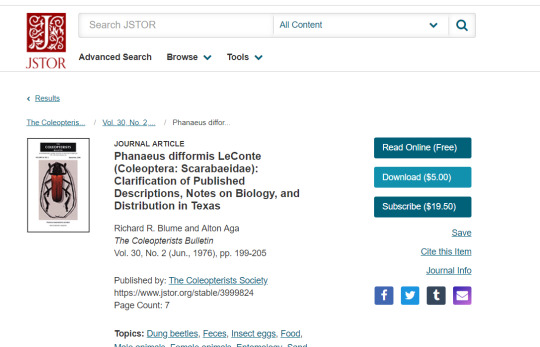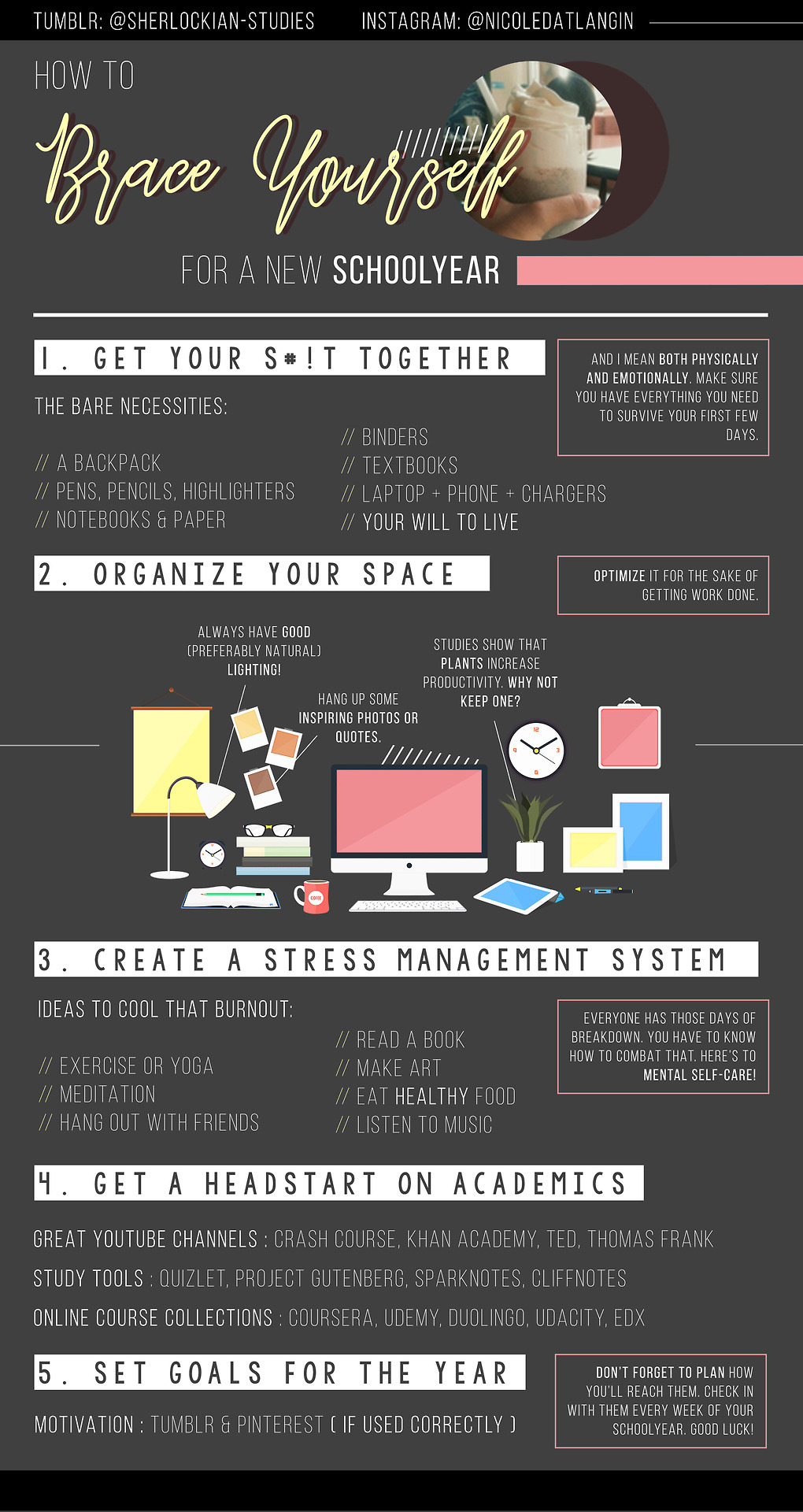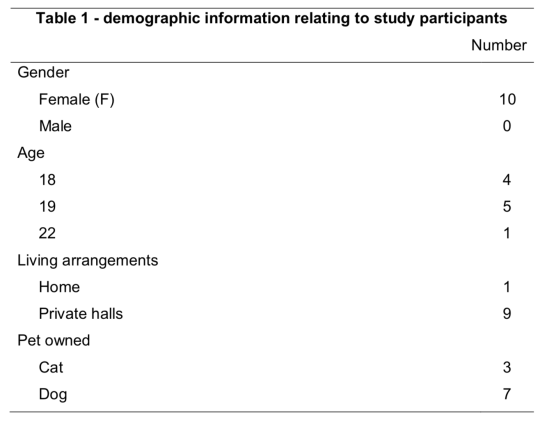Don't wanna be here? Send us removal request.
Text
what I wish someone told me going into my freshman year of college
You and your roommate might not get along.
Just because you woke up early every day in high school doesn’t mean you will be able to in college.
Conversely, you might just realize you are a morning person in college.
You should learn to examine your personal biases. Ask yourself why you have a certain opinion.
There are plenty of students who have taken 17, 18, 19 hour course loads and they have been successful; however, it may not be financially feasible.
Searching for scholarships doesn’t stop when you get to college. Keep looking for them and applying for them. Create a separate email account to receive and correspond to scholarship emails.
Don’t put off visiting your academic advisor. Mine absolutely saved me when I was going through the lowest point in my life.
Let your mom/dad/parental guardian (if applicable) make your bed on move-in day.
Get involved, but only if you want to. Student organizations in college are much more time-consuming, so be certain that it is something you really want to do.
Have fun. You don’t have to go out every single weekend. But go get coffee or study with a friend. Have some sort of interaction with others.
Getting a job really eased my financial burdens and I made friends, and established references. Having money just feels good.
Wash your face. Keep make up wipes close to your bed for nights when you are just too tired to go through an elaborate skin care routine.
Communal showers suck, but we all have to endure them. I promise you will get used to it. But you gotta bathe, friend.
Be honest with your support system. Many times, those closest to us would help us in a heartbeat, but they never knew we needed help in the first place.
Utilize services your tuition covers. These include, but are not limited to, tutoring, legal services, medical services, etc.
Sit in the front row. Just do it. Seriously. You will be less inclined to get on your phone/not pay attention to lecture/discussion material if the material is two feet away from you. You can also see better on those days when you forget glasses, or run out of contacts.
Your MWF life does not know your T/TR life. You can totally hit those clothes with some febreeze and wear them on heavy rotation.
Speaking of clothes, everyone washes clothes on Sundays. It’s a fact.
You really don’t need to bring all of your clothes, expensive jewelry, trophies from that time you did soccer in 2nd grade, etc. to your dorm. Just enough clothes to fit in your drawers/closet for all seasons, and a couple sentimental items to remind you of home.
Save the boxes you use to move into your dorm/apartment. You will need them come move out.
Live and die by the syllabi, but know that professors will change things up randomly. They will also announce things in class that are not on the syllabus at random.
Do invest in some good plates and Tupperware.
Drink water.
The freshman 15 is real and it is coming for you. But it’s okay. You’re still awesome.
Parking in college is universally limited and unforgiving. Be mindful of this.
Many retailers will have sales on microwaves and mini fridges when fall comes around. Invest in them.
Storage containers are a must.
Respect quiet hours.
If you will be living on campus, and your campus is dry - RESPECT THAT. Seriously, it’s such a dumb mistake to make. I have friends who started out on probation because they decided to drink in their dorms their freshman year.
Get a power strip. Or three.
There’s no dress code in college. So you can totally wear that crop top. But be mindful that those surrounding you are potential professional connections. A lot of college is networking.
But, in all honesty, no one really cares what you are wearing.
You are an adult now, so setting boundaries is necessary.
Don’t stay in that toxic relationship.
Keep in touch with your friends/family from back home.
Do ask your professors questions in office hours, during class (if able to), or via email.
Use protection.
Stand up for yourself, what you believe in, and others.
Get the number of at least one person in each class during syllabus week.
Expect to stay the entire 2-4 hours of your lab.
Be respectful of your roommate’s space.
Be respectful of other’s differing opinions in Blackboard discussions.
Be a point whore. Do the extra credit. Do it.
Remember that college is a new beginning.
Realize that grades do not define your intelligence.
Realize that sometimes we fail classes, but it does not mean that we are not “smart enough.”
Know that college is not for everyone.
It’s okay to take a couple semesters off to better yourself. I did, and I am so thankful that I made that decision.
Buy your textbooks and access codes and lab manuals as early as you can.
Use a planner!!!!!!
Mental health is just as important as physical health.
Remember that college is not supposed to be the best years of your life. College is meant to set you up for the best years of your life.
26K notes
·
View notes
Text



announcing the bookends: a cherik zine creators !
(subject to change!)
artists —
@hxstoria | @cynderiaopus | dk yingst | @eastaustraliancurrent | @ellenchain | @caainhurst | @bikenesmith | @georginoschkavincenart | @williamkaplan | @thismightydimoart | @kurokaen | @m-sock | @maddie-w-draws | @chrysanthemumskies | @muddled-mayhem | @muisli | mvximov | @nikorys | @pencilscratchins | @sochika | SORAN | @virbankcity | @thenoman-sland
writers —
@rozf | @dedkake | @checkmate-cherik | @kylux | @ireneadonovan | @jackyjango | @elimaryholmes | @luninosity | @gold-from-straw | @nesnalou | shane scuzs | @terraae
never heard of us? bookends: a cherik zine is a collaborative multi-fancreator cherik fanbook celebrating the xavier/magneto relationship in its many forms! it will be released in pdf form along with some physical merch (charms, postcards, & stickers!)
preorders open 8/20! reblog to spread the word ✨♟🧬✨
137 notes
·
View notes
Text









Renaissance
•please like or reblog if you use
22K notes
·
View notes
Text
I havent seen anyone talk about this yet so im making a post.
So lets say you’re researching something for a paper (or just for fun) and the research paper you want to read is behind a paywall, or the site makes you create an account first, or makes you pay to download, or limits you to only 5 free articles, or otherwise makes it difficult for you to read what you want.

do not fear! copy the link to the article

go to sci-hub.se (the url is always changing so its best to check out whereisscihub.now.sh to find what the current url is)

slap the article link in there

bam! free access!
156K notes
·
View notes
Text
hey since I just told a friend this and they found it helpful: if you’re having hallucinations and are having trouble distinguishing what’s real and what’s not, use your phone’s camera and take a picture of the thing you might be hallucinating. cameras don’t hallucinate.
245K notes
·
View notes
Text
one of the more valuable things I’ve learned in life as a survivor of a mentally unstable parent is that it is likely that no one has thought through it as much as you have.
no, your friend probably has not noticed they cut you off four times in this conversation.
no, your brother didn’t realize his music was that loud while you were studying.
no, your bff or S.O. doesn’t remember that you’re on a tight deadline right now.
no, no one else is paying attention to the four power dynamics at play in your friend group right now.
a habit of abused kids, especially kids with unstable parents, is the tendency to notice every little detail. We magnify small nuances into major things, largely because small nuances quickly became breaking points for parents. Managing moods, reading the room, perceiving danger in the order of words, the shift of body weight….it’s all a natural outgrowth of trying to manage unstable parents from a young age.
Here’s the thing: most people don’t do that. I’m not saying everyone else is oblivious, I’m saying the over analysis of minor nuances is a habit of abuse.
I have a rule: I do not respond to subtext. This includes guilt tripping, silent treatments, passive aggressive behavior, etc. I see it. I notice it. I even sometimes have to analyze it and take a deep breath and CHOOSE not to respond. Because whether it’s really there or just me over-reading things that actually don’t mean anything, the habit of lending credence to the part of me that sees danger in the wrong shift of body weight…that’s toxic for me. And dangerous to my relationships.
The best thing I ever did for myself and my relationships was insist upon frank communication and a categorical denial of subtext. For some people this is a moral stance. For survivors of mentally unstable parents this is a requirement of recovery.
270K notes
·
View notes
Text
20 important study skills/tips i’ve learned from my professors
1. start studying a week before every quiz/test. seriously.
2. watch youtube videos/ted talks on the topics you are learning about.
3. get lots of sleep! sleep helps you process the day’s events, including what you learned.
4. write out your notes. it’s proven that handwritten notes help you learn better than typed out notes.
5. don’t just read what your professor gives you. find academic journals, books, etc. that correspond with your subjects.
6. read the news! especially in the social sciences/humanities, connecting concepts with current events helps you understand and process more easily.
7. exercise! this doesn’t have to be going on runs or lifting weights, it could even just be going for a 20 minute walk. just get your blood pumping, it’ll help you focus.
8. study at your desk. it may be tempting to study in bed, but your brain connects your bed with sleep, so you’ll get tired more quickly.
9. reviewing notes doesn’t have to be something you sit down and do for an hour. skim through them and test your memory while eating breakfast!
10. expand your study time throughout the day to avoid burnout. for example, rather than studying for 5 hours straight, study for an hour here and there in between your activities.
11. make your notes organized and easy to read, but not distracting. bright colors and flashy notes may seem better, but can sometimes distract from the purpose of the notes.
12. use apps such as quizlet. this way, you can go through definitions while waiting in lines or walking to class.
13. it’s more important to know concepts rather than facts. for example, you should be able to take what you know and apply it to different situations, not just the situation the textbook gives you.
14. just because the professor doesn’t require you to read textbook, doesn’t mean you shouldn’t. it helps explain concepts in a different way than your professor, and a lot of times hearing two different explanations for the same concept helps you understand it.
15. read in advance. read the textbook before your professor begins going over the chapter, so when he/she does, you can easily follow what they are saying.
16. do any extra credit work that comes your way. even if you don’t need the extra boost now, you might later.
17. go to class!! if you always skip class and show up at office hours completely lost on the concepts, they’ll laugh in your face. they’ll take you 100x more seriously if you show up.
18. however, if you are sick, take a day off. it’s more beneficial to you in the long run.
19. learn how to say “no”. if you have an 8 am the next day, don’t stay out until midnight with your friends.
20. don’t stress too hard over quizzes. if you expect them to go horribly, they will. you got this.
35K notes
·
View notes
Text
things I wished I knew before starting college
Study ahead of time
Start studying early. As soon as classes start, review your lecture notes and start revising and familiarising yourself with each subject. Remember the important key-points beforehand because they tend to repeat itself.
Your friends are NOT your group mates
Just because they’re your friend, it does not mean that they have to be your group mates. They’ll be many assignments in college that’ll require you to work in groups and it can get frustrating and messy. Choose the people that are most compatible with you in terms of work ethics. Don’t feel pressured to join your friends just because you feel obligated.
FInd a job/save!!
I cannot STRESS this enough. College really does drain all your money, it’s too easy to spend without realizing. Try finding a job that allows you to work for flexible hours, or better yet- a job that allows you to work from home. Juggling both college and work can be overwhelming for some, so if you can’t get a job, save!
Don’t procrastinate on your assignments.
This is definitely something I’m guilty of. It’s so easy to just not think about them and push them back till the very last minute. DON’T DO IT. It’s not worth it. Start your assignments and research the moment it’s given so you won’t need to stress yourself out and pull all-nighters.
1K notes
·
View notes
Photo

How to Brace Yourself for a New School Year
August is fast approaching once again! Though I’m all for “starting the year/ school year right”, I think it’s pretty much unavoidable for us to get off track. A lot. Because of that, I put together this infographic to help minimize those stressful moments in your brand new school years.
First of all, get your shit together. And I mean both physically and emotionally.
it’s a new start my friend!! detox your mind of all those negative thoughts (and people) and embrace the opportunity to start over.
gather all the supplies you need. if you’re moving into a dormitory, make sure it’s equipped with everything you need to feel at home.
her campus college packing list
do’s and don’ts
don’t go overboard with this step, but go get yourself some new stationery. choose wisely, and ensure that you’ll actually use it and it’s not just for purposes of aesthetic. we all want nice instagram feeds, but don’t let that be a reason for you to buy too much pretty stationery.
why not think of a note taking system before classes begin?
the cornell system
mind mapping
flashcards
not all may find the idea of going back to school exciting, but you gotta have the motivation to keep that positive mindset in your head throughout the year! go you.
Organize your study space. You may have to stay in it much longer than usual now.
lighting is important. it’s oversaid, but never untrue. opt for natural lighting when you can, but if you can’t or you’re a night owl, get a good study lamp to brighten up those long hours of work.
I did say you’re probably gonna be staying here for some long bouts of time, but that doesn’t have to be a bad thing. make your desk one of your favorite places to be in. if you want to, make it really pretty. hang up some motivational posters or quotes - perhaps you even want a color scheme with that.
desk inspiration
quote posters to get you going
quotes from writers
have an accessible stash of stationery on your desk at all times so that you don’t have to go looking for a pen and a sticky note when you need to write something down. keep pens, pencils and highlighters in a jar near you.
keep something green on your desk, like a succulent. plants are adorable and the sight of them can boost your productivity.
have a planner or a bullet journal, and make space for that too.
a bujo masterpost
if working with music helps you, have headphones with you as well. always have a study playlist on hand. go for instrumentals or wordless tracks.
study playlist masterpost
make it a habit to keep your space in check every night before you go to bed. it really could make a big difference in how much work you’re gonna be able to do. don’t forget to stay clear of distractions!
Create a stress management system.
okay. this is what i’m telling you to brace yourself for. there are gonna be those days or those moments when you’re gonna feel really depressed or panicked. you’re gonna be okay. feel free to message me or any other studyblr - we’re here to listen =)
take some time out to practice self care and put off work, even for a bit. school is not the most important thing in the world, keeping yourself alive and healthy is. you can sleep, be kind to yourself.
self-care reminders
soothe yourself
go get some food too. you can prep some of your own if you’d prefer.
food masterpost
mood boosting food
never ever ever underestimate the power of exercise. the feeling of finishing a workout is so so so satisfying and I can guarantee you will feel better in no time.
the seven minute workout
popsugar fitness
take out your mat and do some yoga. stretch out all those muscles you held in place for so long sitting at your desk.
I find it important to always have a mini-collection of unread books. if you don’t have any, one of my favorite places to be in is a bookstore or library - and I just read whatever I find. the results can be life changing.
take time to hone your skills in your hobbies. if you can, do it everyday - do that one thing that makes you really happy daily. maybe you like singing. or playing the guitar. or painting. whatever it is, go do it.
write it down! I keep an electronic journal and it really helps to just spill your thoughts out on a notebook or your phone.
honey, please talk to someone if you need to. it won’t hurt.
Get a headstart on academics.
especially on subjects that are easier with advanced reading. if you already know what books you’re going to be tackling for english or literature, go read them.
sparknotes
shmoop
try asking upper years who used to take your classes if they still have their course outlines, or any material they were given before. this can save lives.
gonna be taking a language class? why not start learning it already?
duolingo
memrise
find textbooks and start using them!!
don’t have any idea of what you’re going to study yet? that doesn’t mean you should stop learning something new. you can listen to a ted talk or join an online course.
ted
crash course
coursera
Finally, set SMART goals for the school year. And have a concrete plan for how you’ll reach them.
what average are you aiming for? what organizations do you want to join? make your goals realistic and specific.
motivation is very important, but honestly, you can’t count on it to be with you every single day, every single moment of your life while you’re working for your goals. what will push you forward then? discipline.
building discipline
surround yourself with a community people who support you. like I said in the first step, detox all those negative people from your life. find ways to work with your friends and help each other in attaining goals.
set rewards for yourself too, not just in the long run but for the little things like finishing a good study session or passing a paper early.
study reward ideas
that being said, don’t underestimate the power of setting your short-term goals. those will be your stepping stones to pursuing the bigger picture you envision for yourself.
Tumblr and Pinterest, provided you don’t go too far in using them, can serve your daily doses of inspiration. don’t just use them for the sake of looking at aesthetically pleasing shots, though.
on a final note, don’t let academics take over your life. I hope you have a fantastic year, and good luck!
7K notes
·
View notes
Text
Spanish grammar
Prepositions
Prepositions of place and movement
a ("to" a direction): a la biblioteca (to the library), a Madrid (to Madrid), a Brasil (to Brazil)
a casa de ("to a person's house"): a casa de mis padres (to my parent's house)
a la derecha de ("to the right of"): a la derecha del coche (to the right of the car)
a la izquierda de ("to the left of"): a la izquierda del coche (to the left of the car)
al lado de (" next to" something/"near" something): Juan está al lado del coche (Juan is next to the car)/Vivo al lado de la estación (I live near the station)
alrededor de ("around" something): alrededor de la casa (around the house)
a través de ("through/across"): a través de la puerta (through the door)/a través de España (across Spain)
cerca de ("near" something): Vivo cerca de la estación (I live near the station)
contra ("against" something): contra la pared (against the wall)
de ("from" a place): Vengo de Andalucía (I'm from Andalusia)
debajo de ("under" something): debajo de la mesa (under the table)
delante de ("in front of" something): delante del árbol (in front of the tree)
detrás de ("behind" something): detrás de la casa (behind the house)
en ("in" a room, a building, a street, a city, a country/"on" a means of transportation, position): en la ciudad (in the city)/en la silla (on the chair)
en casa de ("at" a person's house): Estoy en casa de Pablo (I'm at Pablo's)
encima de ("on" something): encima de la mesa (on the table)
enfrente de ("across" from something): Él vive enfrente de mi casa (He lives across my house)
entre ("between" two or more things): Andorra está entre Francia y España (Andorra is between France and Spain)
fuera de ("outside of" something): fuera de la casa (outside the house)
hacia ("towards" something): Ve hacia el norte (Go towards the north)
junto a ("near", "next to", "by" something): junto a la entrada (near the entrance)
lejos de ("far" from something): Vivo lejos de la estación (I live far from the station)
por ("through", "by" something): Tienes que entrar por la puerta (You have to go through the door)
sobre ("over", "above" something/"on" something): sobre la cabeza (over the head)/sobre la mesa (on the table)
tras ("behind" something): tras la puerta (behind the door)
34 notes
·
View notes
Text
I’m going to give you the best piece of Adult Life Is Hard advice I’ve ever learned:
Talk to people when things go to shit.
I don’t just mean get it off your chest, although that’s good. I mean: Something’s wrong with your paycheck/you lost your job/you had unexpected emergency car repairs and now you’re broke so your credit card payment is late. Like, not just 15 days late. We’re talking, shit got crazy and now you’re 90 days late with compounded interest and late fees and the Minimum Payment Due is, like, $390, and you’ve got about $3.90 in your bank account. Call the credit card company.
I know it’s scary. I know you feel like you’re going to get in trouble, like you’re gong to get yelled at or scolded for not having your life together. But the credit card company isn’t your parents; they’re just interested in getting money from you. And you can’t squeeze blood from a stone or money from someone who doesn’t have any. So what you do is you call them. You explain you’re experiencing temporary financial hardships, and you’re currently unable to bring your account up to date, but you don’t want to just let it get worse. Can you maybe talk to someone about a payment plan so you can work something out? Nine times out of ten you’ll be able to negotiate something so that at least it’s not just taking a constant, giant shit on your credit score.
- Can’t pay your power bill? Call the power company.
- Can’t pay your full rent? Talk to your landlord.
- Had to go to the hospital without insurance and have giant medical bills looming in your place? Call the hospital and ask if they have someone who helps people with financial hardships. Many do.
- Got super sick and missed half a semester of class because flu/pneumonia/auto-immune problems/depressive episode? Talk to your professor. If that doesn’t help, talk to your advisor.
You may not be able to fix everything, but you’ll likely be able to make improvements. At the very least, it’s possible that they have a list of people you can contact to help you with things. (Also, don’t be afraid to google things like, “I can’t pay my power bill [state you live in]” because you’d be surprised at what turns up on Google!) But the thing is, people in these positions gain nothing if you fail. There’s no emotional satisfaction for them if your attempts at having your life together completely bite the dust. In fact, they stand to benefit if things work out for you! And chances are, they’ll be completely happy to take $20 a month from you over getting $0 a month from you, your account will be considered current because you’ve talked to them and made an agreement, you won’t get reported to a collections agency, and your credit score won’t completely tank.
Here’s some helpful tips to keep in mind:
1. Be polite. Don’t demand things; request them. Let me tell you about how customer service people hold your life in their hands and how many extra miles they’ll go for someone who is nice to them.
2. Stick to the facts, and keep them minimal unless asked for them. Chances are they’re not really interested in the details. “We had several family emergencies in a row, and now I’m having trouble making the payments” is better than “Well, two months ago my husband wrecked his bike, and then he had a reaction to the muscle relaxer they gave him, and then our dog swallowed a shoestring and we had to take him to the emergency clinic, and just last week MY car broke down, and now my account’s in the negatives and I don’t know how I’m gonna get it back out.” The person you’re talking to is aware shit happens to everyone; they don’t need the details to prove you’re somehow “worthy” of being helped. They may ask you for details at a certain point if they have to fill out any kind of request form, but let them do that.
3. Ask questions. “Is there anything we can do about X?” “Would it be possible to move my payment date to Y day instead so it’s not coming out of the same paycheck as my rent?” The answer may be “no.” That’s not a failure on your part. But a good customer service person may have an alternate solution.
Anyway! I hope that helps! Don’t just assume the answer is “no” before you’ve even begun. There is more help out there than you ever imagined.
152K notes
·
View notes
Text
Back To School Supplies
With the upcoming college/high school semesters soon, I figured y'all could use this.
1. Pens and pencils (obviously). I like to use the same color pen for all of my notes, it’s a psychological thing that makes me feel more uniform, organized, and helps me remember it better. Also studies show that you’re more likely to remember content written in blue pen than in any other color, so do with that what you will.
2. Two notebooks for each class: one for your in class notes (which can be slightly messier), and one for your at home notes (which should be more organized and neat).
3. Folders/binders for each class to keep all of your quizzes, tests, and worksheets.
4. Flashcards flashcards flashcards. Try to get different colored flashcards for each class/topic.
5. Whiteout if you use pens and can’t stand messy notes like me.
6. Calculator, protacter, and compass for math subjects (if required/allowed)
7. Dry erase markers: sometimes my friends and I will study in empty classrooms, and using the boards can reslly help map out certain concepts.
8. Keep at least one sharpie marker on you for labelling and whatnot.
9. Scissors and a small tape dispenser/glue are always handy, just in case.
10. A small stapler should also be useful for essays and whatnot.
11. A laptop is essential for college notes. Typing out your notes, using quizlet and other helpful websites, and access to research sites and databases is insanely helpful.
12. Get a Google account. It includes helpful tools like Gmail, Google Drive, etc.
13. Extra stuff for your bag: hairbrush & hairtie, gum/mints, water bottle, nail file/clippers, and makeup wipes.
14. Always always always bring a laptop/phone charger for your devices.
15. Spare paper/looseleaf in a separate folder is useful.
16. Keep an agenda/planner for assignments, homework, and test dates. If you hate a paper copy, or have trouble remembering stuff even with a planner, try an app on your phone that sets reminders.
💞Thats all for now, good luck babes💞
2K notes
·
View notes
Photo


Source
Video of Tama
Follow Ultrafacts for more facts
1M notes
·
View notes
Photo

HOW TO WRITE A HIGH-GRADE RESEARCH PAPER
~~~~~~~~~~~~~~~~~~~~~~~~~~~~~~~~~~~~~~~~~~
The first time I had to write a research paper for university was one of the most stressful experiences I’d ever had - it was so different to anything I’d ever done before and caused me so much anxiety! It turned out that I’m pretty damn good at writing research reports and I’m now looking to pursue a career in psychological research.
I have never received less than a First (or 4.0 GPA for you American studiers) in my research papers so I thought I’d share my top tips on how to write a kick-ass, high-grade research paper.
*disclaimer: I am a psychology student, my tips are based on my personal experience of writing up psychological research (quantitative and qualitative); therefore, they may require some adaptation in order to be applied to your field of study/research*
These tips will be split up into the different sections a research paper should consist of: abstract, introduction, methods, results, discussion, references and formatting.
ABSTRACT
The aim of an abstract is to summarise your whole paper - it should be concise, include key-words, highlight the key points of your paper and be written last.
When I say concise, I mean concise! The abstract is what other students and researchers will read in order to decide whether your research is relevant their own work and essentially determines whether or not they’ll read on - they want to know the key details and don’t want to be overwhelmed with information.
I always aim to keep my abstracts under 250 words. I set myself this limit to stop myself waffling and dwelling on unimportant points, it helps me to be really selective of what I include and ensures I’m gripping the reader from the start.
Your abstract should discuss the research rationale, the methods and designs used, your results and the general conclusion(s) drawn. One or two sentences on each of these topics is enough.
Make sure you’re using key-words throughout your abstract as this will also help the reader decide whether your work is relevant to theirs. You can make key-words super obvious by highlighting them in a key at the bottom of your abstract (see below) or just used jargon consistently. Using key-words is also important if you’re looking to get your work published, these words will help people find your work using search engines.

Finally, write your abstract last! An abstract is a summary of your whole research paper which makes it practically impossible to write well first. After writing the rest of your paper, you will know your research inside and out and already have an idea of what key things you need to highlight in your abstract.
INTRODUCTION
For me, the introduction section is always the most intimidating to write because it’s like painting on a blank canvas - massively daunting and leaving you terrified to make a mistake!
The aim of an introduction is to provide the rationale for your research and justify why your work is essential in the field. In general, your introduction should start very broad and narrow down until you arrive at the niche that is your research question or hypothesis.
To start, you need to provide the reader with some background information and context. You should discuss the general principle of your paper and include some key pieces of research (or theoretical frameworks if relevant) that helps your reader get up to speed with the research field and where understanding currently lies. This section can be pretty lengthy, especially in psychological research, so make sure all of the information you’re including is vital as it can be pretty easy to get carried away.
This background should lead you onto the rationale. If you’ve never written a research paper before, the rationale is essentially the reason behind your own research. This could be building on previous findings so our understanding remains up to date, it could be picking up on weaknesses of other research and rectifying these issues or it could be delving into an unexplored aspect of the field! You should clearly state your rationale and this helps lead into the next section.
You should end your introduction by briefly discussing your current research. You need to state your research question or hypothesis, how you plan on investigating the question/hypothesis, the sample you plan on using and the analysis you plan to carry out. You should also mention any limitations you anticipate to crop up so you can address these in your discussion.
In psychology, references are huge in research introductions so it is important to use an accurate (and modern as possible) reference for each statement you are making. You can then use these same references in your discussion to show where your research fits into the current understanding of the topic!
METHODS
Your methods section should make use of subheadings and tables where necessary and should be written in past tense. This can make the (potentially) lengthy section easier to navigate for the reader. I usually use the following headings: participants, materials, design, procedure.
The participants section should describe the sample that took part in your research. Age, gender, nationality and other relevant demographic information should be provided as well as the sampling technique. Personally, I use a table (see below) alongside my continuous prose as an alternative way of viewing my sample population. Please note, if you’re using a table make sure it adheres to your university guidelines.

The materials section of your methods should include any equipment, resources (i.e. images, books, diagrams) or any other materials used in your data collection. You should also reference the program that helped you conduct your analysis. For example, if you are writing a qualitative research paper, you may want to include Microsoft Word in your materials if you use the program to transcribe interviews.
You should then describe the design used in your research. All variables should be identified in this paragraph, if relevant. You should also discuss whether your research is within-groups or between-groups, again only if relevant.
Last is your procedure section - the most important one! You must write this section with enough detail so that anybody could pick it up, read it and conduct the same experiment with ease. You should describe what participants were required to do, how data was collected and it should be written in chronological order! While it’s important to provide enough information, try not to overwhelm the reader with lengthy sentences and unnecessary information.
RESULTS
Your results section’s sole purpose is to provide the reader with the data from your study. It should be the second shortest section (abstract being first) in your research paper and should stick to the relevant guidelines in regards to reporting figures, tables and diagrams. Your goal is to relay results in the most objective and concise way possible.
Your results section serves to act as evidence for the claims you’ll go on to make during your discussion but you must not be biased in the results you report. You should report enough data to sufficiently justify your conclusions but must also include data that doesn’t support your original hypothesis or research question.
Reporting data is most easily done through tables and figures as they’re easy to look at and select relevant information. If you’re using tables and figures you should always make sure you’re stating effect sizes and p values and to a consistent decimal place. Illustrative tables and figures should always be followed by supporting summary text consisting of a couple of sentences relaying the key statistical findings in continuous prose.
DISCUSSION
The discussion section should take the opposite approach to your introduction! You should start discussing your own research and broaden the discussion until you’re talking about the general research field.
You should start by stating the major findings of your study and relating them back to your hypothesis or research questions. You must must must explicitly state whether you reject or accept your experimental hypothesis, if you have one. After stating your key findings you should explain the meaning, why they’re important and where they fit into the existing literature. It’s here that you should bring back the research you discussed in your introduction, you should relate your findings to the current understanding and state the new insight your research provides.
You should then state the clinical relevance of your research. Think about how your findings could be applied to real-life situations and discuss one or two practical applications.
After this, discuss the limitations of your research. Limitations could include sample size and general sample population and how this effects generalisability of findings, it could include methodological problems or research bias! These limitations will allow you to discuss how further research should be conducted. Suggest ways in which these limitations could be rectified in future research and also discuss the implications this could have on findings and conclusions drawn.
Finally, you need to give the reader a take-home message. A sentence or two to justify (again) the need for your research and how it contributes to current understanding in the field. This is the last thing your audience will read so make it punchy!
~~~~~~~~~~~~~~~~~~~~~~~~~~~~~~~~~~~~
That’s it folks! My tips for writing a kick-ass, high-grade research paper based on my personal experience. If you have any questions regarding things I’ve missed or didn’t provide enough detail of, then please just send me an ask!
Also, if any of you would like to read any of my past research papers I would be more than happy to provide you with them :-))
7K notes
·
View notes
Text
textbook prices are homophobic
83K notes
·
View notes
Text
a big sister’s college tips
wait until after syllabus week to buy your textbooks. they might not be required. it’ll save you money
prioritize your classes by number of credit hours. more credit hours = bigger impact on your GPA. sometimes there’s not enough study time to go around
if you wanna dress up for class, dress up for class. if you wanna pull up in the sweatshirt you wore yesterday, that’s okay too
locate your classes before they start, so you don’t get lost on the first day. check and see if your college has an app of some sort with a campus map!
old exams are more valuable than life itself
set your class schedule as your home screen until you’ve got it down
Chegg.com. you’re welcome
carry a sweatshirt. it may be 100 degrees outside but chances are it’s 30 degrees in your lecture hall
keep your syllabi
write things down!! planner, phone, laptop, etc.
sit in the front. go up and introduce yourself to your professor after the first day, say you’re looking forward to the class. build a relationship! Professors do not round grades for students they don’t at least recognize
bring your chargers with you everywhere
sometimes it’s easier to wake up early and study for an exam than stay up late the night before
shower shoes. have you ever heard of toe fungus
the dorms are bad BUT you will get through it (and make friends while doing it)
there’s no such thing as a condom that doesn’t fit
every time you skip class it costs you money. go to class. (unless you are dying or have no other time to finish something for another class)
your mental health is important. college can be overwhelming. know your limits. seek help if you need it.
sometimes if you go to your professor’s office hours and ask questions a day or two before an exam they will steer you towards information that will be covered
find your study space. the library is your friend
parking is a bitch and a half
it’s okay to miss your parents. call them. (they miss you too)
talk to your advisor!!! let them advise you!!!
don’t study yourself into the ground. after college you’re a real life adult - enjoy college while it lasts. go out, make friends, if you drink, do so responsibly. uber exists for this very reason
keep an eye on your drink at all times
don’t feel pressured to go out and drink because college. it’s not for everybody
on a related note: pedialyte is your friend
don’t be afraid to drop a class that doesn’t fit you, but talk to your advisor first
chances are you’re paying a lot of money to be where you are. party if you wanna, but do not let it interfere with your grades.
you’re gonna get a lot of free stuff. take advantage
if you can handle it with your class load, get a job. it’s a good way to make friends.
it’s okay to change your major. really!
first semester is easier if you get involved with something!!
there will be weeks when you have nothing due, and then there will be weeks when you have 5 exams 14 assignments and 2 papers due all at once. take advantage of down time. work ahead!! make life easier for your future self
carry a water bottle
exercise will not only help avoid the freshman 15 but also make you feel better
it’s okay if you’re not best friends with your roommate
communicate if they are doing something that annoys you
keep your dorm clean. the only thing worse than a tiny space is a messy one
buy an umbrella
13K notes
·
View notes
Text
Things I've heard my (cis/het) brother say while he's been in college for the last year:
-(Heard over the phone) “I don’t care WHAT is in your pants or what you identify as, GET THE FUCKING PISS OFF THE TOILET SEAT” - “I don’t get why some men like to call themselves straight and then say they’d never date a Trans woman because honestly if you’re willing to exclude an entire subsection of women based on something so stupid you’re probably not worth their time anyways” -“I don’t know why some guys worry about gay men in the locker rooms because if I was a gay guy, even I wouldn’t date me. I’ve been wearing the same shirt for three days.“ -(Over spring break) “How the fuck do you make Kraft mac&cheese” -“What do you mean it’s written on the box– WAIT SHIT IT IS” -“I hit on a lesbian two weeks ago in the SU without knowing it and I still feel bad about it” -“I honestly think I’d prefer living with a (Trans) person at this point because if they’re even as half as cool as you then it’s got to be better than living with two 19 year old boys who have fucking competitions of who can piss farther on the ceiling” -“For some reason even in college guys don’t seem to get that the only reason I get so many girls’ numbers is because I treat them like I would treat anyone else” -“No seriously they think you have to act uninterested or like a dick for some reason” -“No I don’t know why they think hitting on a lesbian is anything but a lot of secondhand embarrassment for the rest of us” -“My roommate came into the room looking really dejected and when I asked why he said that he spent hours talking to this girl just to find out that she had a boyfriend the whole time and didn’t say anything” (And after me asking why it mattered) “I dunno, apparently he doesn’t understand the concept of friends” -(After me saying I don’t get heterosexuals sometimes) “Even I don’t understand straight guys little dude, and I am one”
158K notes
·
View notes